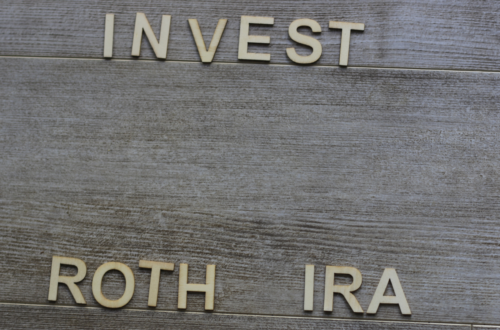
Home Buying Mistakes to Avoid: Essential Tips for First-Time Buyers
Buying a home is a significant milestone, but it comes with many potential pitfalls. Avoiding common mistakes, such as skipping the home inspection or overlooking hidden costs, can save buyers from financial strain and emotional distress. Taking a thoughtful approach can make the home-buying process smoother and ultimately more rewarding.
Many first-time buyers underestimate the importance of thorough research. This includes not only analyzing the housing market but also considering long-term needs and potential resale value. By keeping these factors in mind, buyers can make informed decisions that will benefit them in the long run.
Additionally, working with a qualified real estate agent can be crucial. These professionals can provide valuable insights and guidance throughout the process, helping buyers navigate challenges effectively. For instance, using a tailored property search through a specialized buyer’s agent, such as Bradbourne Property, ensures that homes are matched precisely to the buyer’s preferences, budget, and location requirements. This approach streamlines the search process, exposes buyers to off-market opportunities, and increases the chances of finding the perfect property.
Financial Pitfalls to Avoid When Buying a Home
Navigating the financial aspects of home buying requires careful consideration. Recognizing key financial pitfalls can save buyers significant stress and expense. Key areas to focus on include closing costs, property taxes, total homeownership costs, and down payment strategies.
Overlooking Closing Costs
Closing costs can add a significant amount to the overall expense of purchasing a home. Buyers should budget for these costs, which typically range from 2% to 5% of the home’s purchase price. This encompasses various fees, including attorney fees, appraisal fees, and title insurance.
Buyers should request a detailed breakdown of these costs early in the process. Some lenders provide a Loan Estimate to clarify these expenses. Understanding these figures helps avoid surprises during the closing process.
Ignoring the Impact of Property Taxes and Insurance
Property taxes and homeowners’ insurance can greatly affect monthly budgets. Property taxes generally vary by location, so buyers must research the rates in their desired neighborhoods. This expense is often included in the mortgage payment, but it can fluctuate annually.
Homeowners’ insurance is another critical factor. It protects against damages and liabilities, and its cost varies based on factors like the home’s location and value. Buyers should obtain multiple quotes to find competitive rates.
Underestimating the Total Cost of Homeownership
Many buyers focus solely on the mortgage payment, but this is just one part of homeownership costs. Additional expenses include utility bills, maintenance, and potential homeowner association (HOA) fees. Budgeting for these variables is essential to avoid financial strain.
Buyers should also consider future costs. A home may require repairs or renovations, and budgeting for these can prevent unexpected financial issues. Establishing a home maintenance fund can help accommodate these expenses over time.
Inadequate Down Payment Planning
Underestimating the required down payment can lead to complications. Many lenders expect a down payment of at least 20% to avoid private mortgage insurance (PMI). Lower down payments will affect monthly mortgage payments and overall interest costs.
Researching down payment assistance programs can also benefit first-time buyers. These programs can provide grants or loans, easing the financial burden. Buyers should evaluate their savings plan and be aware of the implications of different down payment amounts.
Critical Mistakes During the Homebuying Process
Navigating the homebuying process involves critical decisions. Some of the most common mistakes can lead to unforeseen challenges and financial strain.
Skipping the Home Inspection
Many buyers forgo a home inspection to save time or costs. This decision can lead to significant issues down the road. A home inspection reveals potential problems, such as structural damage, mold, or outdated electrical systems.
Investing in a thorough inspection can save thousands in repairs. Buyers should seek a qualified inspector and review the findings carefully. Ignoring this step may result in unexpected expenses after purchase. If an inspection does uncover severe issues like foundation cracks, uneven floors, or compromised stability, addressing them quickly with help from Alpha Structural Foundation Repair or similar firms for identical issues, can provide diagnosis and swift repair. Ultimately, understanding the true structural condition of a property empowers the buyer to negotiate repairs or confidently walk away from a risky purchase.
Neglecting Mortgage Pre-Approval
Failing to obtain mortgage pre-approval can hinder the buying process. Without pre-approval, buyers may not know their budget, leading to potential disappointments. This step involves assessment by a mortgage lender who evaluates financial health and creditworthiness.
Pre-approval gives buyers a clear picture of their financing options. It also increases credibility with sellers. A prepared buyer can negotiate better terms and avoid wasting time on homes above their budget.
Misjudging Your Credit Score
Buyers often underestimate the impact of their credit score on mortgage rates. A low credit score can lead to higher interest rates, increased monthly payments. Before initiating the homebuying process, it is crucial for buyers to check their scores and address any errors or outstanding debts.
Taking steps to improve the credit score, such as paying off debts, can lead to better financing options. Buyers should also inquire about various mortgage products available to them. Understanding credit score implications is essential for a successful home purchase.
Navigating the Real Estate Market and Professional Guidance
Understanding the local real estate market is essential for buyers, as mistakes can lead to missed opportunities and financial setbacks. Therefore, approaching the market with knowledge and professional guidance is crucial. Many homebuyers often turn to trusted services like Lake Arrowhead Homes, which can offer invaluable guidance and support. These firms can help buyers explore a wide range of properties and provide resources such as property listings, community insights, and advice on amenities and long-term value. With the help of proper professional guidance, first-time buyers can make informed decisions and navigate the home-buying process with greater confidence and ease.
Failing to Research the Local Market
Knowledge of the local market is vital for any homebuyer. Each neighborhood has unique features, pricing trends, and demand levels. Buyers should investigate recent sales, average home prices, and upcoming developments that might influence future values.
Online tools, local listings, and community forums can provide insight. Engaging with local statistics helps buyers set realistic budgets and expectations. Ignoring these factors can lead to overpaying or selecting an undesirable location.
Choosing the Wrong Real Estate Agent or Realtor
Selecting the right real estate agent can significantly impact the home-buying experience. A good agent understands the nuances of the market and can provide tailored advice. Buyers should look for individuals with solid track records in their desired area.
It’s essential to interview potential agents. Discuss their experience, knowledge of local trends, and their strategy for negotiations. Buyers may also consider specialists, like a buyer’s agent, who focuses solely on the interests of homebuyers. Missteps in choosing an agent can result in inadequate representation.
Missing Out on Negotiation Opportunities
Negotiation is a critical skill in real estate transactions. Buyers often overlook opportunities for negotiations, which could lead to better terms or prices. Understanding market trends can aid in crafting effective offers.
A good agent can facilitate negotiations, addressing price, contingencies, and closing costs. Buyers should be prepared to make a strong initial offer, but also allow room for adjustments. Failing to negotiate can mean leaving money on the table or missing favorable conditions.
Common Emotional and Practical Mistakes for First-Time Homebuyers
First-time homebuyers often encounter a blend of emotional and practical pitfalls that can affect their purchasing experience. Recognizing these common mistakes can help them make informed decisions throughout the buying process.
Letting Emotions Drive Decisions
First-time homebuyers frequently let emotions dictate their choices. They may become attached to a property based on aesthetics rather than practicality. This emotional attachment can lead to overpaying or neglecting important factors.
To avoid this, buyers should create a checklist of must-haves and deal-breakers. Prioritizing practical aspects such as location, size, and potential resale value can help curb impulsive decisions.
Additionally, seeking input from a trusted advisor can provide perspective, ensuring that decisions align with financial goals. Keeping emotions in check creates a balanced approach to home buying.
Rushing the House Hunting Process
The desire to find the perfect home can lead first-time buyers to rush through the house-hunting process. This urgency may result in overlooking essential details about properties or neighborhoods.
Buyers should dedicate adequate time to researching different areas, considering factors such as schools, safety, and amenities. Attending open houses and comparing multiple properties provides a broader understanding of options.
Establishing a realistic timeline for viewing homes helps buyers avoid hastily made decisions. Patience is crucial; taking time to explore can ultimately lead to a better long-term investment.
Overlooking Future Repairs and Maintenance
Ignoring potential repairs and maintenance costs is a significant mistake for first-time homeowners. New buyers may focus solely on the purchase price and neglect to assess the property’s condition comprehensively.
Conducting a thorough home inspection is essential. This includes evaluating roofs, plumbing, HVAC systems, and appliances. Understanding the age and condition of these elements can help buyers anticipate future expenses.
It’s wise to budget for ongoing maintenance to prevent unexpected expenses later. Creating a financial plan that includes potential repair costs promotes responsible homeownership and reduces stress over time.





